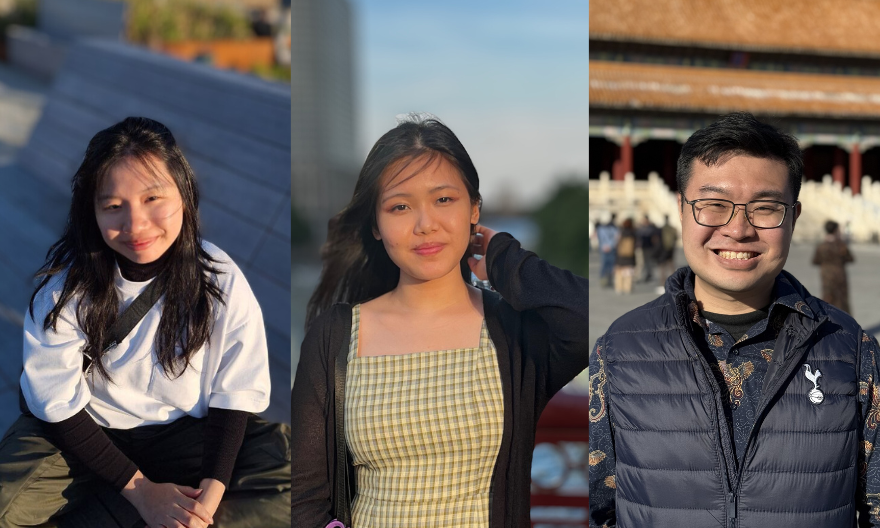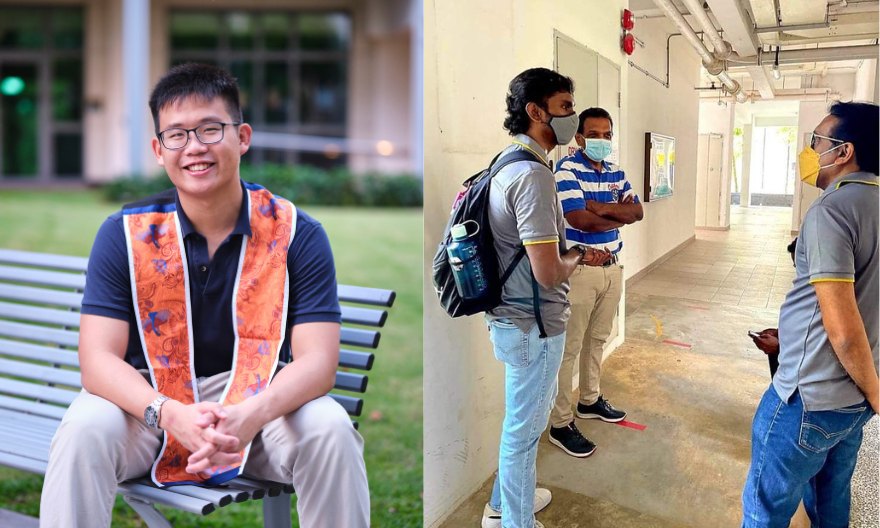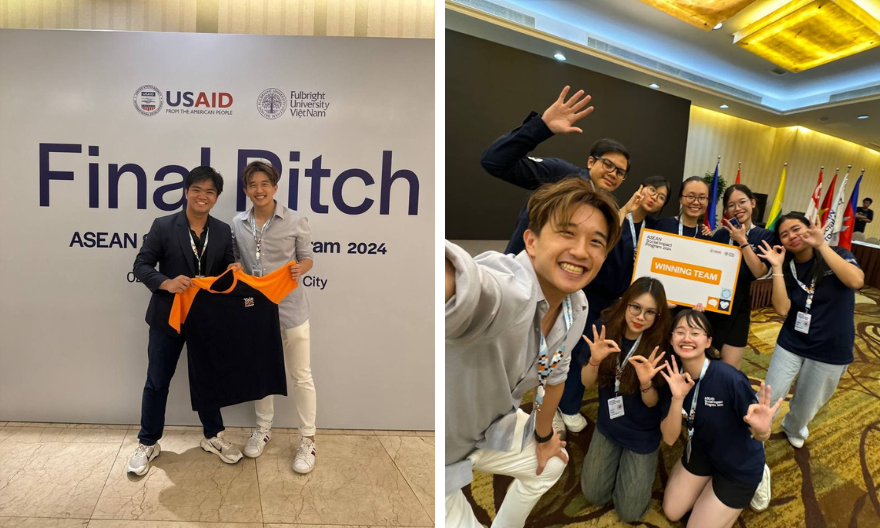Harnessing the power of youth, collaboration, and collective wisdom to solve today’s challenges
Yale-NUS College hosted a panel discussion on how youths can provide novel solutions to urban challenges
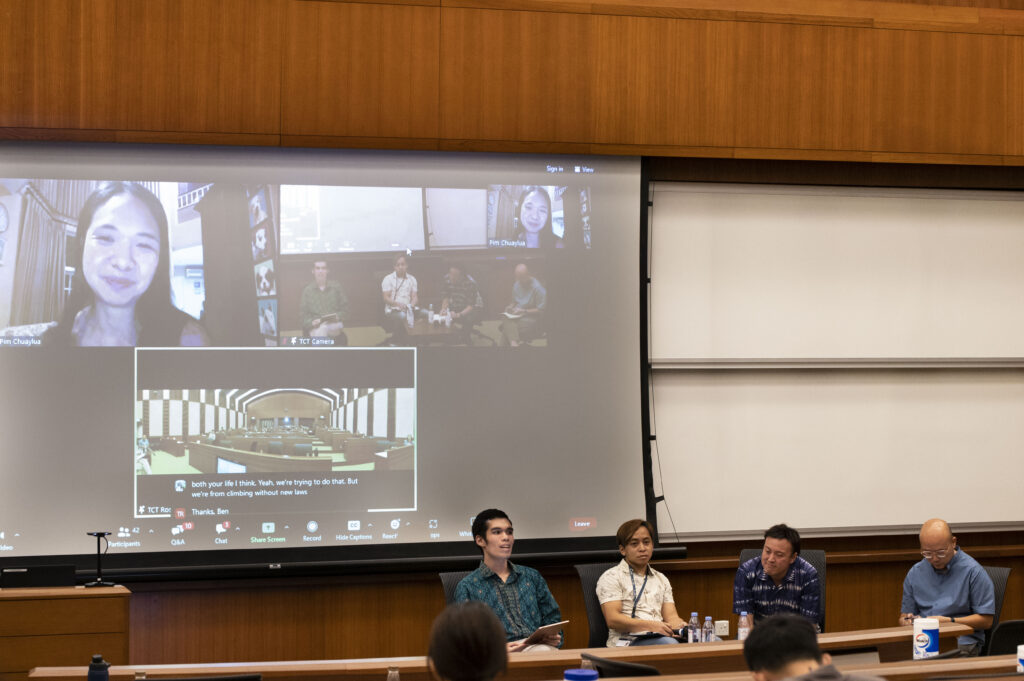
Southeast Asian cities are evolving rapidly. As cities continue to grow, they must confront new and emerging challenges from various fronts. How can governments address issues of urban development in a way that meets everyone’s needs? And how can societies include everyone in a city’s vision of the future? Such key questions and more were discussed during an insightful panel discussion titled ‘Urban Experimentation in Southeast Asia: Novel Solutions to Emerging Challenges’. Held on 4 April 2024, the event was hosted by Yale-NUS College, in collaboration with the Young Urbanists of Southeast Asia (YUSEA), an organisation focused on community development and urban planning.
Among the panellists were Larry Yeung, the executive director of Participate in Design (PiD), a non-profit design organisation; Pim Chuaylua, founding software engineer at the Bangkok-based startup MuvMi, who joined the discussion over Zoom; Dr Priza Marendraputra, a postdoctoral fellow at the Asia Research Institute, National University of Singapore; and Shawn Tan, Deputy Director of Research at the Centre for Liveable Cities Singapore. Each brought a unique perspective to the discussion on Southeast Asian urbanism, shaped by their experiences working in diverse sectors across different cities in the region. The panel was moderated by YUSEA co-president and Yale-NUS alumnus Joshua Vargas (Class of 2023).
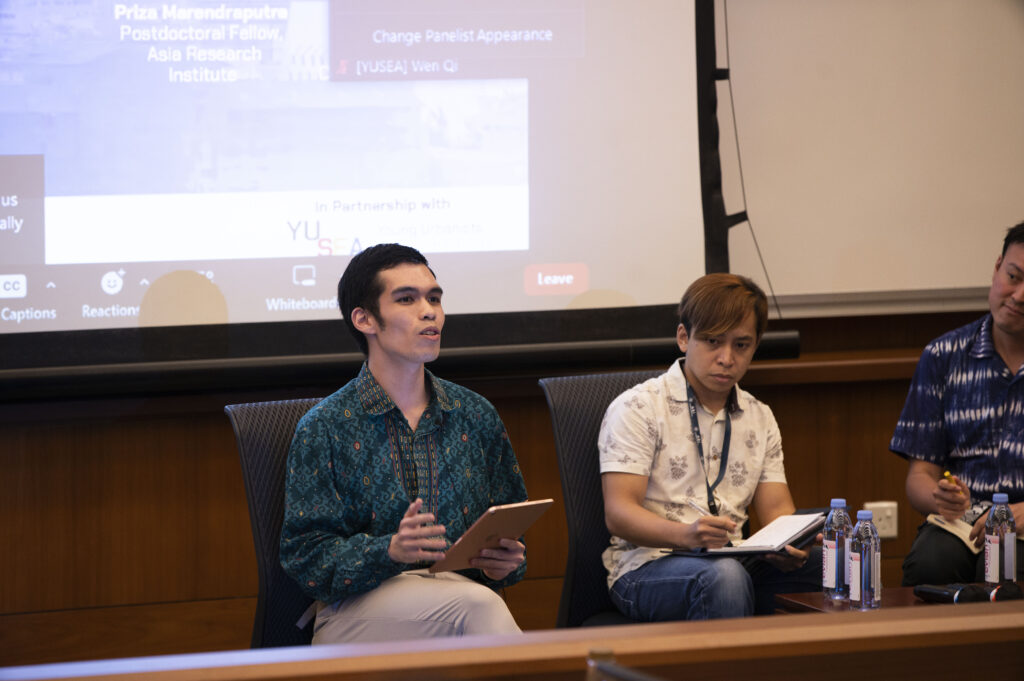
One of the key themes that emerged was the importance of governments and local communities working together to produce urban solutions. Recognising that no single entity could single-handedly drive change, the speakers emphasised the value of embracing collective wisdom. One of them pointed out that in Singapore, local communities tended to rely heavily on the government to solve issues. However, as problems such as the increasing lack of space in Singapore and climate change grew increasingly complex, the government could not be expected to have all the answers. They thus called for greater involvement from members of the public in the decision-making process of urban planning, as they might offer valuable perspectives and expertise the government did not possess.
Contrastingly, other panellists highlighted examples in Thailand and Indonesia, where the impetus for change primarily originated from local communities. For instance, efforts to create safe, affordable, and convenient transportation in Bangkok were entirely community-led. This particular point of the discussion was effectively summarised by another speaker, through his coining of the term “the ‘middle-out’ approach”. He described this approach as a collaborative one, in which both government and community perspectives were brought to the table.
The panellists also fielded questions from the audience. As the moderator, Joshua posed the question of how indigenous voices could be incorporated into urban solutions around the region. The panel shared an example wherein National Parks Board Singapore (NParks) had initially planned to remove eucalyptus trees at a local park, but faced resistance from park goers. After some consultation, a compromise was eventually reached: some trees were preserved, while the others that were cut down were refurbished into park benches and tables. This illustrated how incorporating opinions from the ground could lead to the development of creative solutions.
Pari Biswas (Class of 2025) asked how urban planning authorities could ensure the data they collected took into account the opinions of underserved and underrepresented groups within larger communities. One of the panellits shared that in Bangkok, useful data from official sources about transport demands and movement patterns were limited. Nevertheless, this limitation became a catalyst for innovation, as a company devised a novel approach of analysing local car travel patterns using GPS data from local drivers, shedding light on issues of transport needs overlooked by the government. The panel also underscored the need to continually reflect on blind spots in research, such as the reflexivity in asking ‘who else should be included’ is something that must be continually done. This informs the research methodology that is then employed, and “avoids the risks of groupthink and echo chambers”.
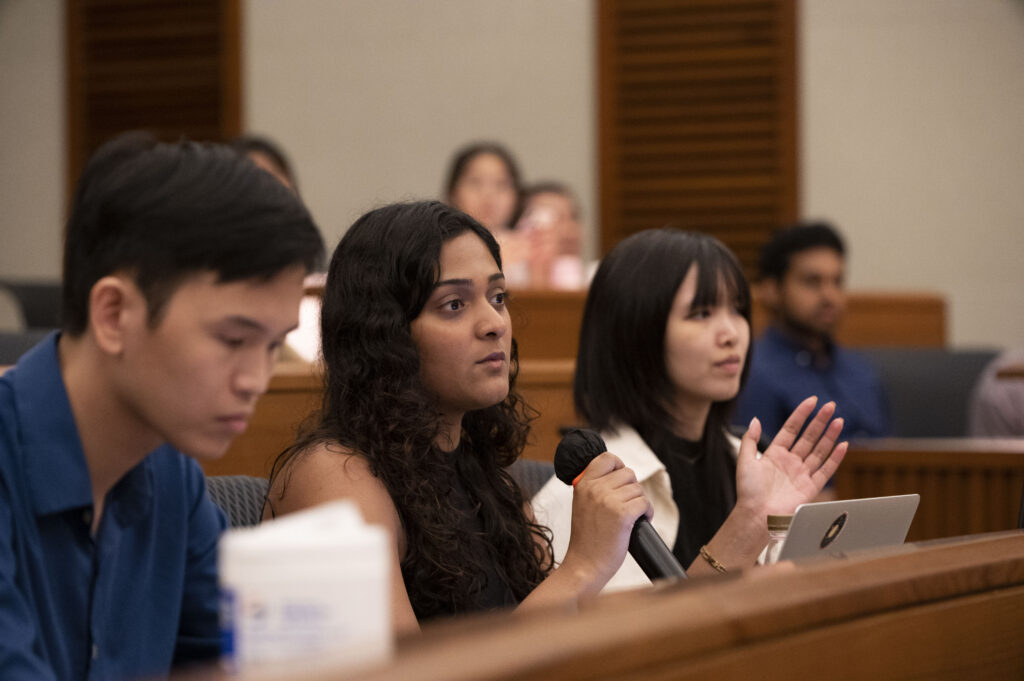
Finally, the panel concluded with each speaker imparting a piece of advice to youths passionate about urban development and place-making. Their advice included leveraging on social media as a platform through which they could make their voices heard, urging youths to continue advocating for causes they believed in, even in the face of resistance from authorities, encouraging them to solve problems in their communities, and last but not least, to simply ask questions.
Reflecting on his takeaways from the panel, Desmond Lee (Class of 2025) shared, “While urban redevelopment has always been a central theme in urban planning, it was eye-opening to perceive it as part of a broader movement of civil and political engagement. The panellists consistently encouraged youths to maintain a questioning attitude and to challenge established norms. This highlights the pivotal role of curiosity, critical thinking, and citizen involvement in driving positive change within urban environments.”

